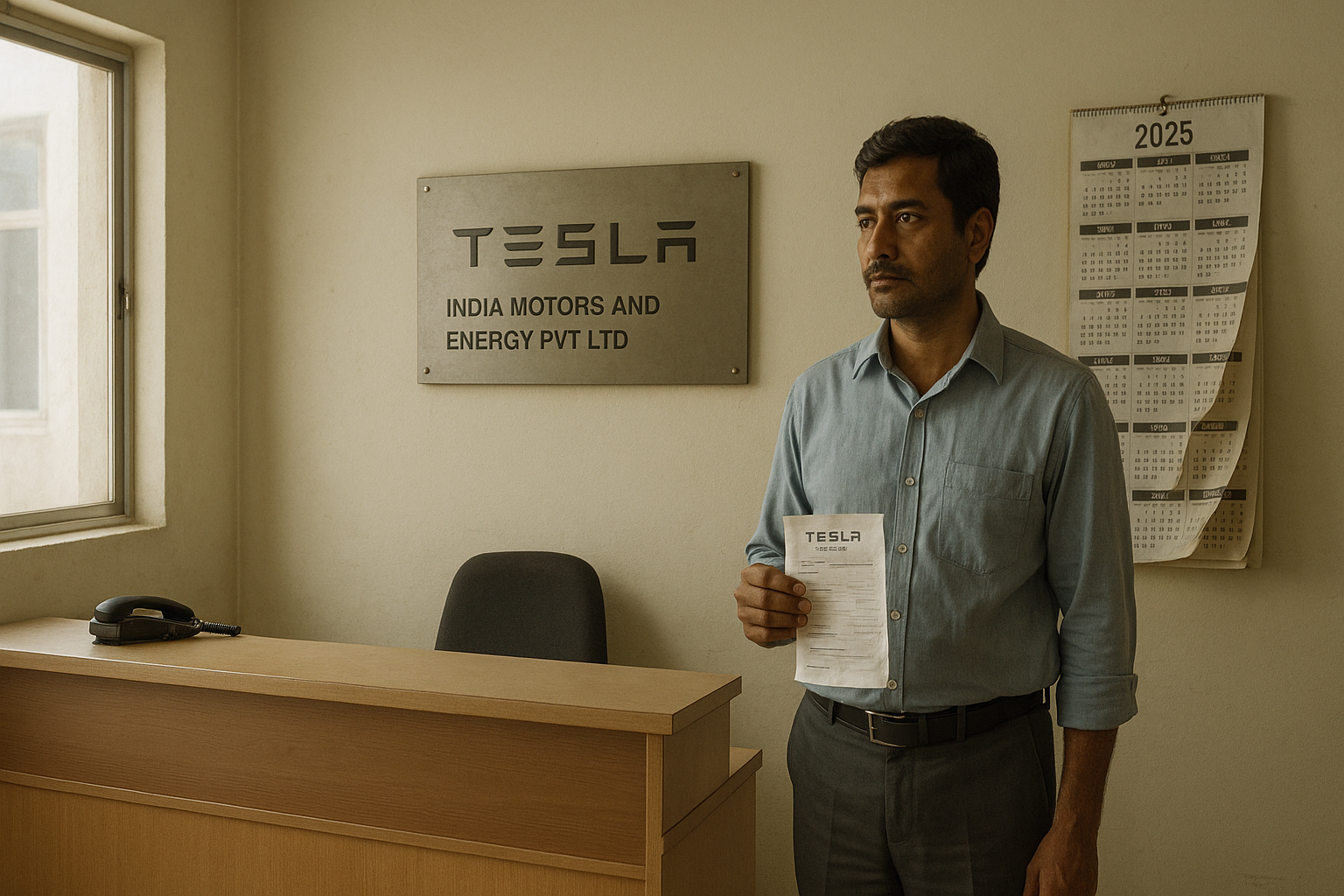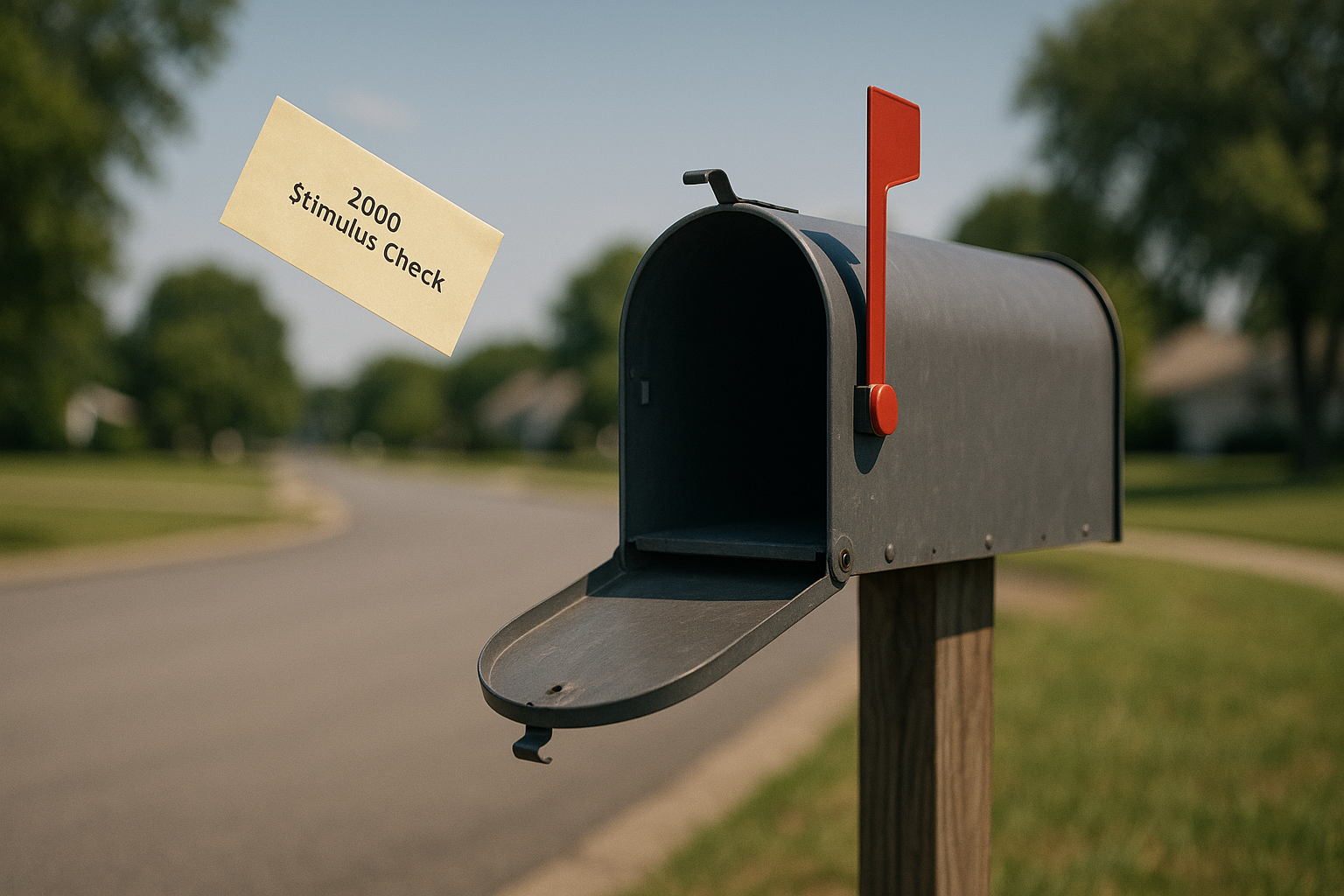The most frustrating relationship status isn't "it's complicated" — it's "on hold indefinitely." Just ask the handful of Tesla enthusiasts in India who've been stuck in automotive limbo since 2015.
These folks — ten early believers with dreams of electric revolution — dropped $1,000 deposits nearly a decade ago for cars that existed mostly as gleaming promises in Elon Musk's Twitter feed. Now, after nine years of waiting, Tesla has finally established a formal presence in India with all the excitement of filing quarterly taxes.
No glitzy showroom openings. No Musk-led spectacles. Just... paperwork.
I've tracked Tesla's international expansion strategies for years, and this one's particularly curious. The company that built its brand on flashy events and viral moments has entered the world's most populous market through the corporate equivalent of the back door — a modest regulatory filing establishing "Tesla India Motors and Energy Private Limited" with an office in Bengaluru that probably doesn't even have the fancy coffee machine yet.
Look, customer patience is a resource like any other. And Tesla has been mining this particular vein for nearly a decade in India.
Think about it. These deposits essentially functioned as interest-free loans with no maturity date. In what other context would consumers willingly hand over money for a promise that stretched across multiple presidential administrations? (I asked several financial advisors this question, and their responses ranged from nervous laughter to concerned inquiries about my investment portfolio.)
The timeline itself tells a story of perpetually moving goalposts:
2015: Initial deposit program opens, Indian tech enthusiasts jump in 2017: Musk tweets that Tesla would arrive "hopefully this summer" 2019: More promises, more delays 2021: Tesla finally registers an Indian business entity... then nothing
Meanwhile, those $1,000 deposits sat on Tesla's balance sheet like patient little soldiers.
What's fascinating is the psychology at work. After a certain point — maybe year three or four? — pulling your deposit becomes less about the money and more about abandoning an identity. These weren't just customers; they became characters in a waiting-for-Godot drama where withdrawing meant admitting the show might never go on.
I spoke with two early reservation holders last year (both tech executives in Bangalore who requested anonymity), and their relationship with Tesla had evolved into something almost spiritual. "It's not even about the car anymore," one told me. "It's principle."
The strangest part of this saga? Tesla's ultimate entry strategy. After making these depositors wait longer than it takes to complete medical school, the company plans to import fully built vehicles from Germany — guaranteeing eye-watering prices thanks to India's steep import duties on luxury vehicles.
Those early believers won't just get their cars late; they'll pay premium prices for their loyalty. Talk about adding insult to injury (or perhaps more accurately, adding financial injury to the insult of waiting nine years).
This pattern — the pre-order economy — has somehow normalized what would've seemed absurd a generation ago. We now regularly pay for products that don't exist yet, offering interest-free financing to billion-dollar companies based on little more than rendered images and promotional videos.
And Tesla? They've turned this consumer financing model into an art form.
I can't help wondering what happens when desire finally meets reality after so much anticipation. These ten early adopters have spent nearly a decade imagining their Tesla ownership experience. They've watched multiple new models launch globally. They've seen charging networks expand everywhere except where they live.
Can any actual car — even one with a Tesla badge — possibly live up to nine years of dreams?
(The answer, almost certainly, is no. But don't tell them that. They've waited too long to hear it now.)




